Kamala Harris, unburdened by what has been, now free to run for president
A phrase often repeated by Kamala Harris — ‘What can be, unburdened by what has been’ — has become a rallying cry as she becomes the presumptive nominee, write Richard Hall, Andrew Feinberg and Eric Garcia
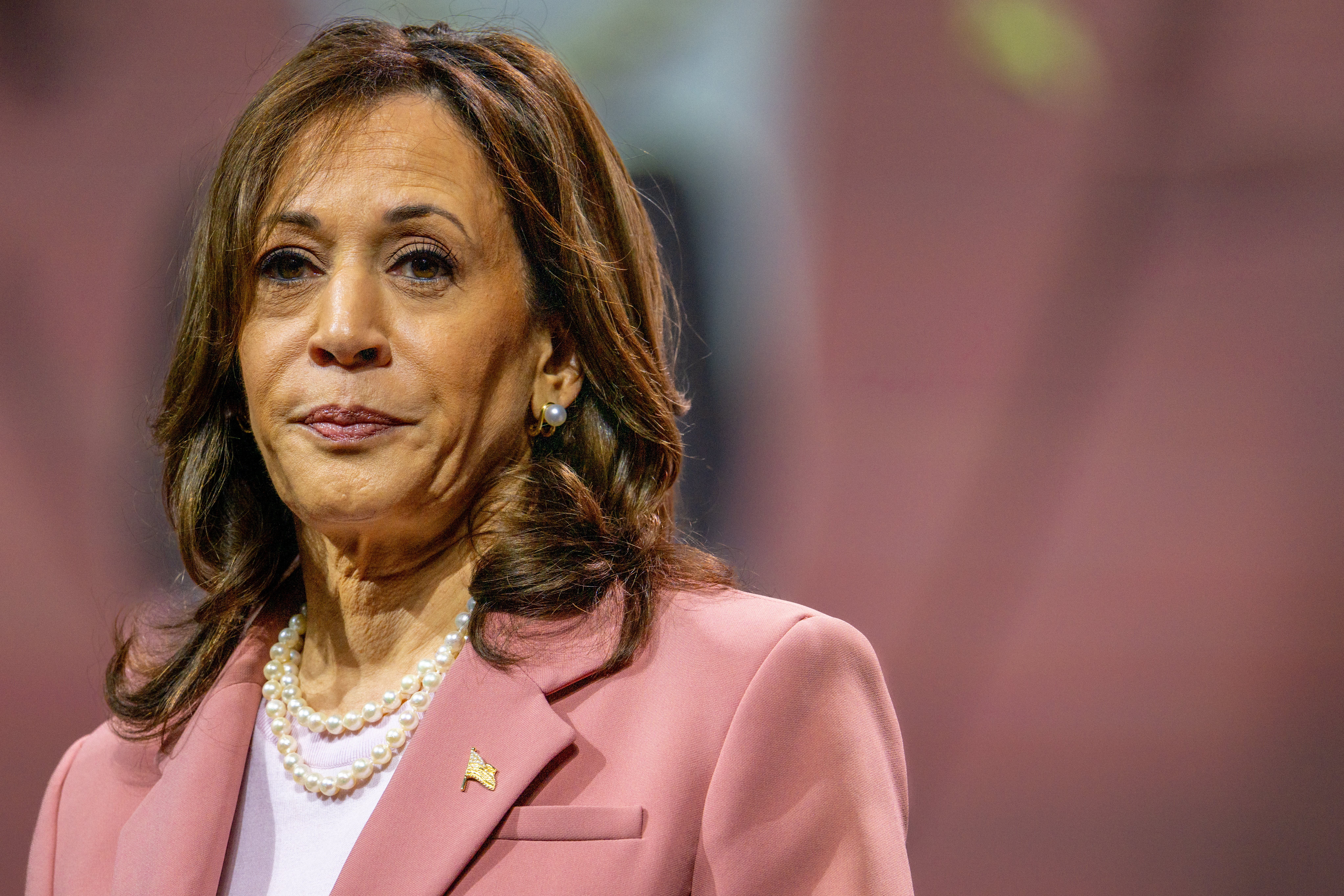
Your support helps us to tell the story
From reproductive rights to climate change to Big Tech, The Independent is on the ground when the story is developing. Whether it's investigating the financials of Elon Musk's pro-Trump PAC or producing our latest documentary, 'The A Word', which shines a light on the American women fighting for reproductive rights, we know how important it is to parse out the facts from the messaging.
At such a critical moment in US history, we need reporters on the ground. Your donation allows us to keep sending journalists to speak to both sides of the story.
The Independent is trusted by Americans across the entire political spectrum. And unlike many other quality news outlets, we choose not to lock Americans out of our reporting and analysis with paywalls. We believe quality journalism should be available to everyone, paid for by those who can afford it.
Your support makes all the difference.Kamala Harris, unburdened by what has been, finally sees what can be.
“My very first decision as the party nominee in 2020 was to pick Kamala Harris as my Vice President. And it’s been the best decision I’ve made,” wrote President Joe Biden on X, shortly after announcing he would not run for re-election. “Today I want to offer my full support and endorsement for Kamala to be the nominee of our party this year. Democrats — it’s time to come together and beat Trump. Let’s do this.”
With the departure of Biden, Harris is now the party’s presumptive nominee (although others may throw their hats in the ring) and this year’s presidential election has been turned upside down.
No longer will the nation be forced to participate in a re-run between two old men. The meaning of this race has shifted, and so have all of the previous assumptions about how it would end.
Should she win, Harris would be a history-making president: simultaneously the first woman, the first Black woman, and the first person of Asian descent, to hold the highest office in the land.
Not only that, she would have prevented Donald Trump from a second term in office for a second time, making her the most important political figure in the pushback against this country’s anti-democratic forces.
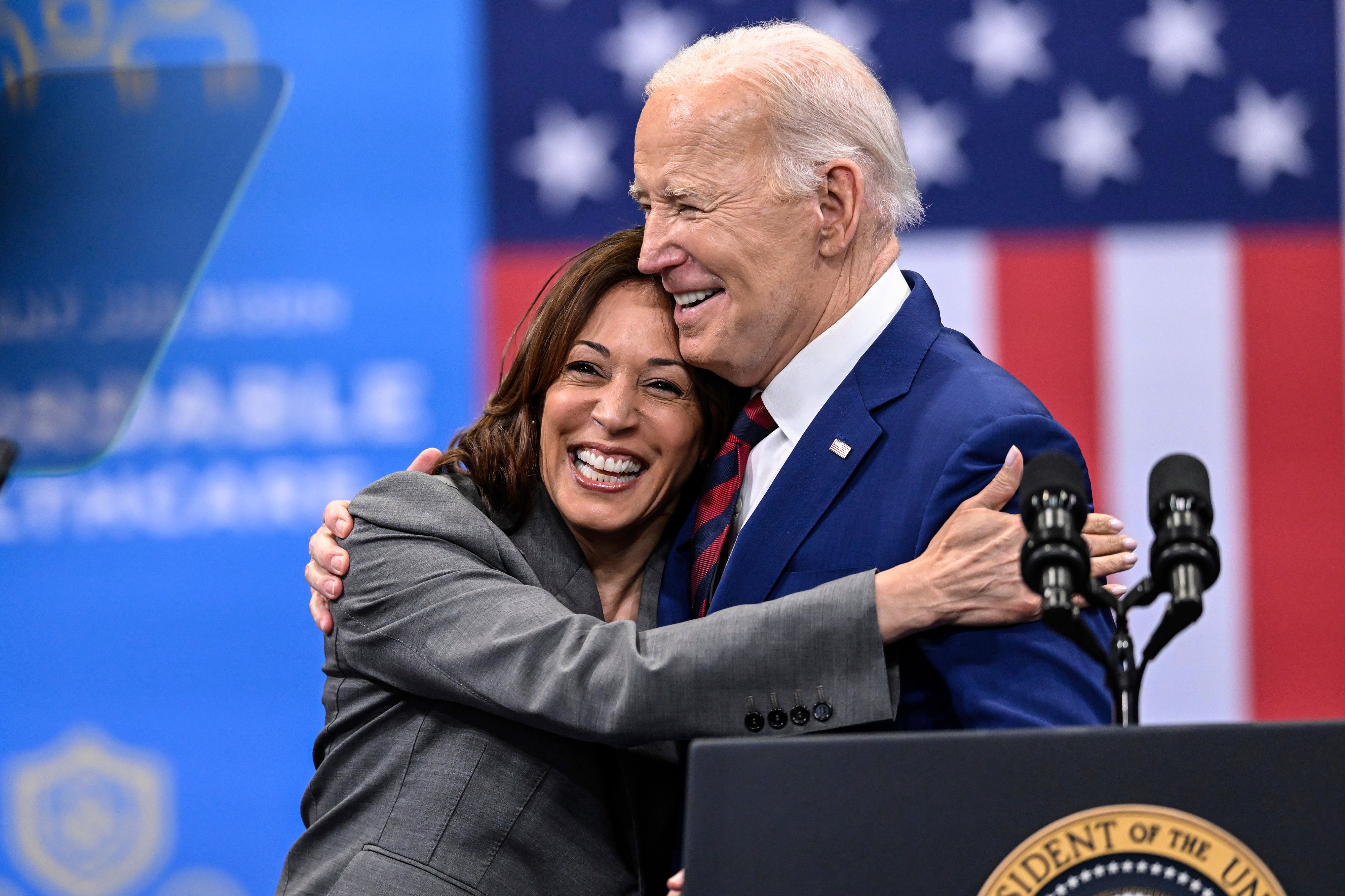
But it will not be a straightforward journey. Harris’s vice presidency has been rocky — dogged by dismal approval ratings and a policy portfolio that has seen her take on politically tricky issues, like the root causes of an immigration crisis that’s brought hundreds of thousands to the US in recent years.
Her difficulty finding her feet as vice president has reinforced concerns — which emerged during her first run for the Democratic nomination in 2020 — that she would not be the best or most obvious replacement for Biden. Other names were regularly floated instead — such as Gretchen Whitmer of Michigan, and Gavin Newsom of California.
That all changed one night in June, when Biden gave such a halting performance on the debate stage opposite Donald Trump that senior leaders in his party urged him to step down from the 2024 race as soon as possible.
Suddenly, Harris seemed inevitable. She has access to the money raised for the Biden-Harris campaign, and her selection would avoid a messy fight just a few months before election day. Prominent Democrats and donors began to rally around her.
One Democratic strategist who spoke to The Independent earlier this month said Harris would enjoy broad support from young voters and other party factions that have soured on Biden.
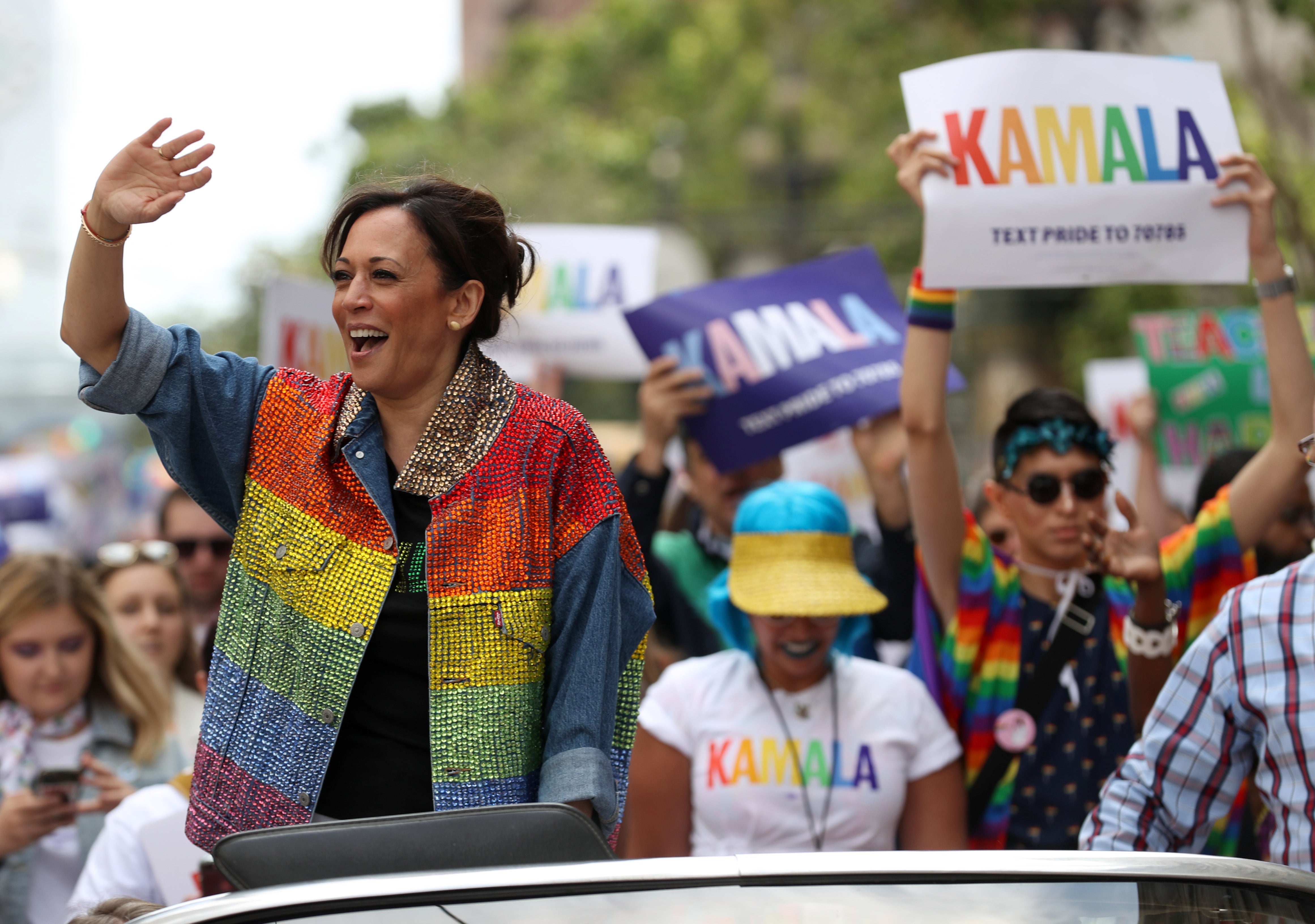
“People who are unhappy with Trump versus Biden now get to say: ‘We got somebody else.’ Maybe it wasn’t who exactly they wanted. But everybody loves a good comeback story, and she has a great comeback story,” he said.
A survey by CNN and SSRS taken immediately after the debate showed Harris in a near statistical tie with Trump, 45 per cent to the ex-president’s 47 per cent, a showing that was several points better than the 43 per cent Biden garnered against Trump’s 49 per cent in the same poll.
That survey found that Harris currently outperforms Biden among two key voting blocs – women and independent voters – even though 538’s average of political surveys shows that she trails him by two points when voters are polled on their approval of each of them.
But Harris will also face the same challenges she had to battle during her 2020 campaign, which ended unexpectedly early.
Born in Oakland, California, to an Indian mother and Jamaican father, Harris drew comparisons to Barack Obama early in her career. She rose from a local prosecutor in San Francisco to become California’s attorney general, then went on to become only the second Black woman to serve in the Senate.
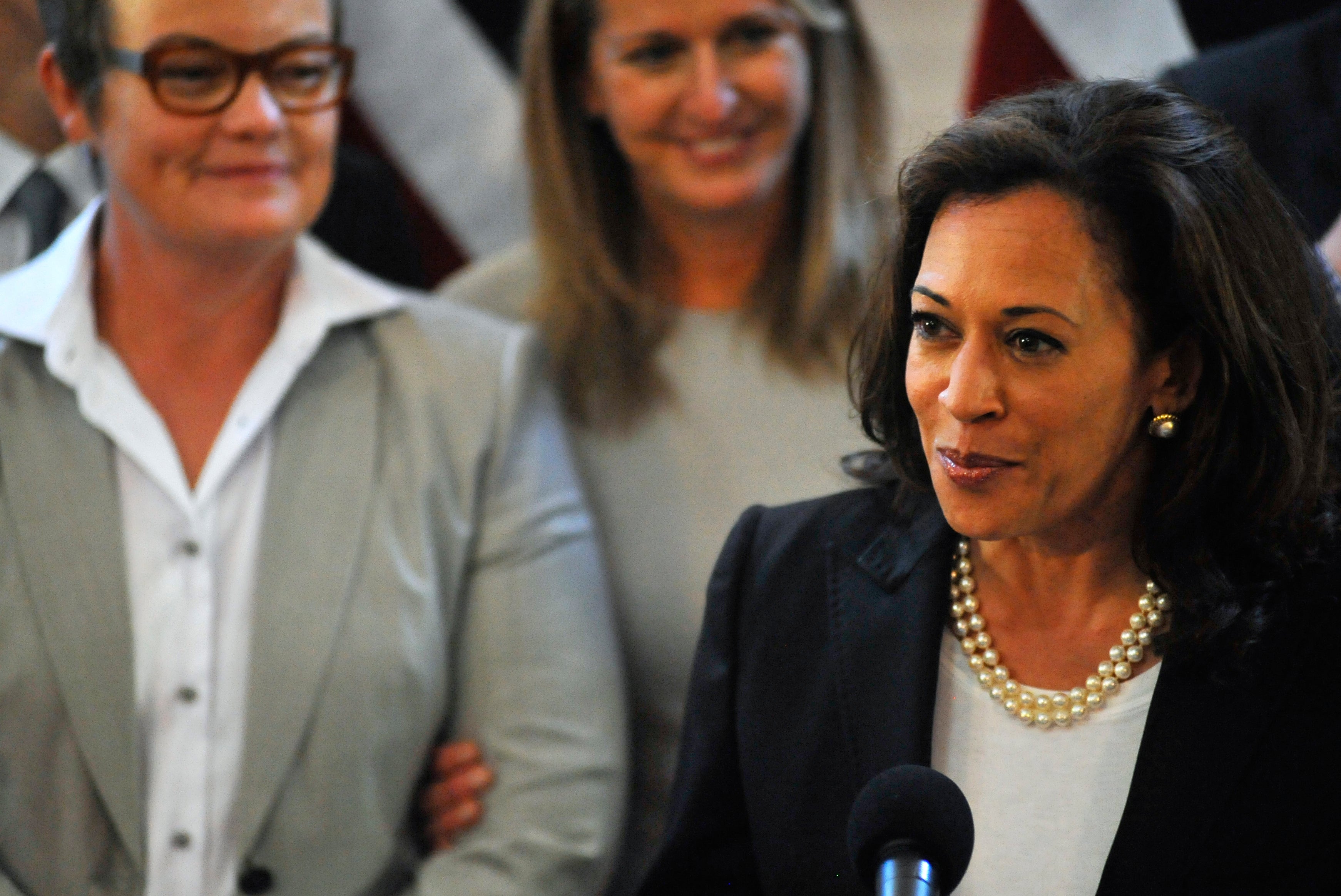
She served four years of a six-year Senate term, but it was her time as attorney general that gave her opponents the most ammunition during her 2020 primary campaign. While Harris characterised her record as that of a reformer, critics said she followed a more conservative “tough on crime” agenda.
“In her career, Ms. Harris did not barter or trade to get the support of more conservative law-and-order types; she gave it all away,” Lara Bazelon, a law professor and former director for the Loyola Law School Project for the Innocent in Los Angeles, wrote in a New York Times article.
She attempted to counter those criticisms by releasing a criminal justice plan aimed at reducing mass incarceration and ending the war on drugs.
Harris peaked in national polls during her presidential run at 15 per cent after a June 2019 debate clash with Biden. But she was never able to regain those heights, and her campaign was beset by organisational and money problems.
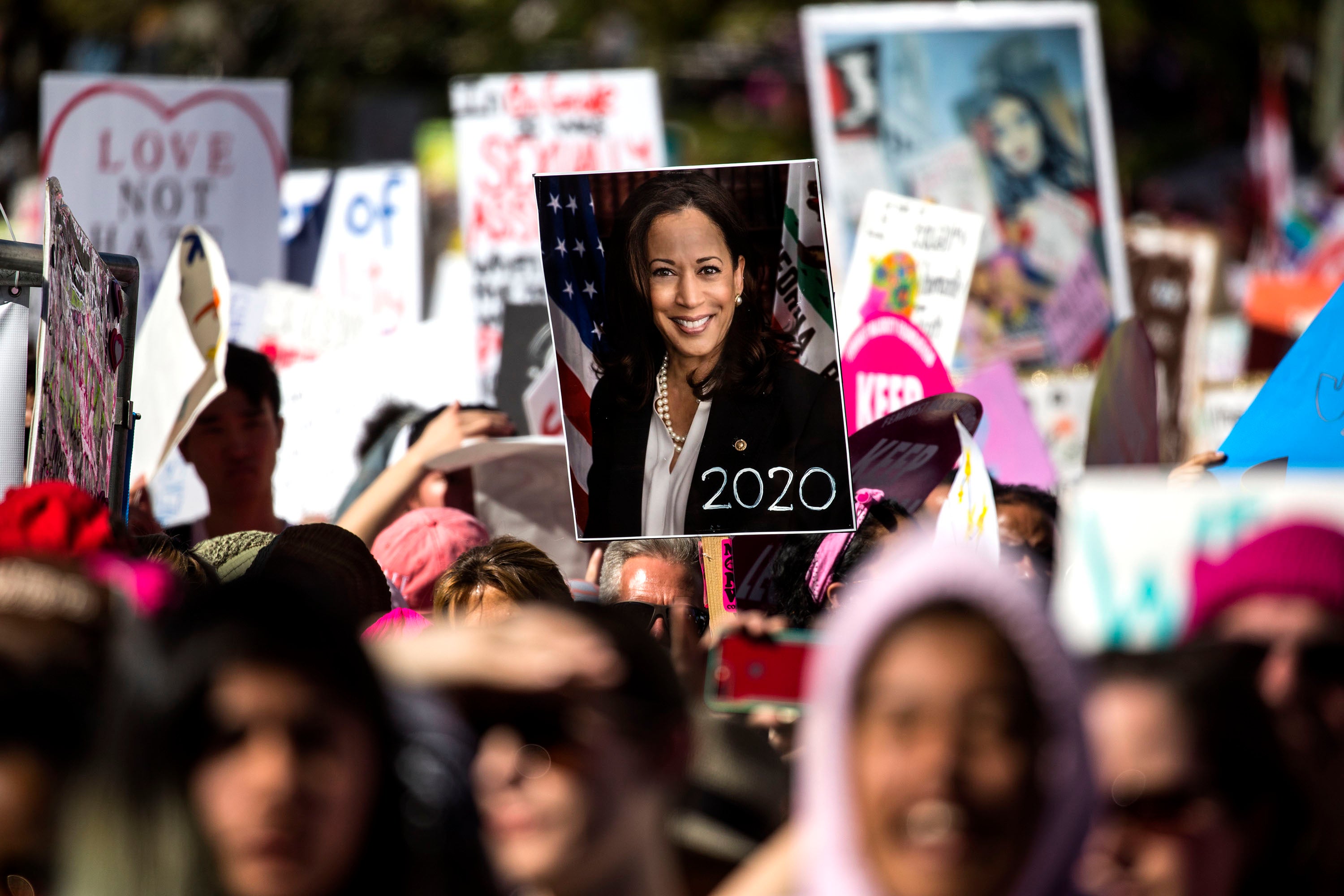
In a letter to her supporters announcing the end of her campaign, she wrote: “Our campaign uniquely spoke to the experiences of Black women and people of color — and their importance to the success and future of this party.”
Four years later, Harris has a new record to campaign on and none of the organisational problems. She will now be able to take advantage of the nationwide apparatus already built by the Biden-Harris campaign. She can also lean on Biden’s economic successes and his historic pace of legislation in the first two years in office.
Republicans are already preparing for a Harris-led ticket. Trump has increasingly criticised her at rallies, and a digital ad from the National Republican Congressional Committee attacked her as the nation’s “border czar”.
At the Republican National Convention in Wisconsin earlier this month, Charlie Kirk, the head of Turning Point USA who has become Trump’s liaison to younger voters, said the party was already preparing for Biden to be off the ticket.
“If it’s Kamala, we’re ready to pivot,” he told The Independent. “If it’s Gretchen Whitmer or Gavin Newsom, we’re ready to roll. We’re unified, they’re not, and good luck figuring out who’s going to run.”
But it is not obvious how effective a Republican campaign geared to attacking Biden’s age could pivot to face vice-president Harris. And she has also significantly improved as a campaigner during her time in office.
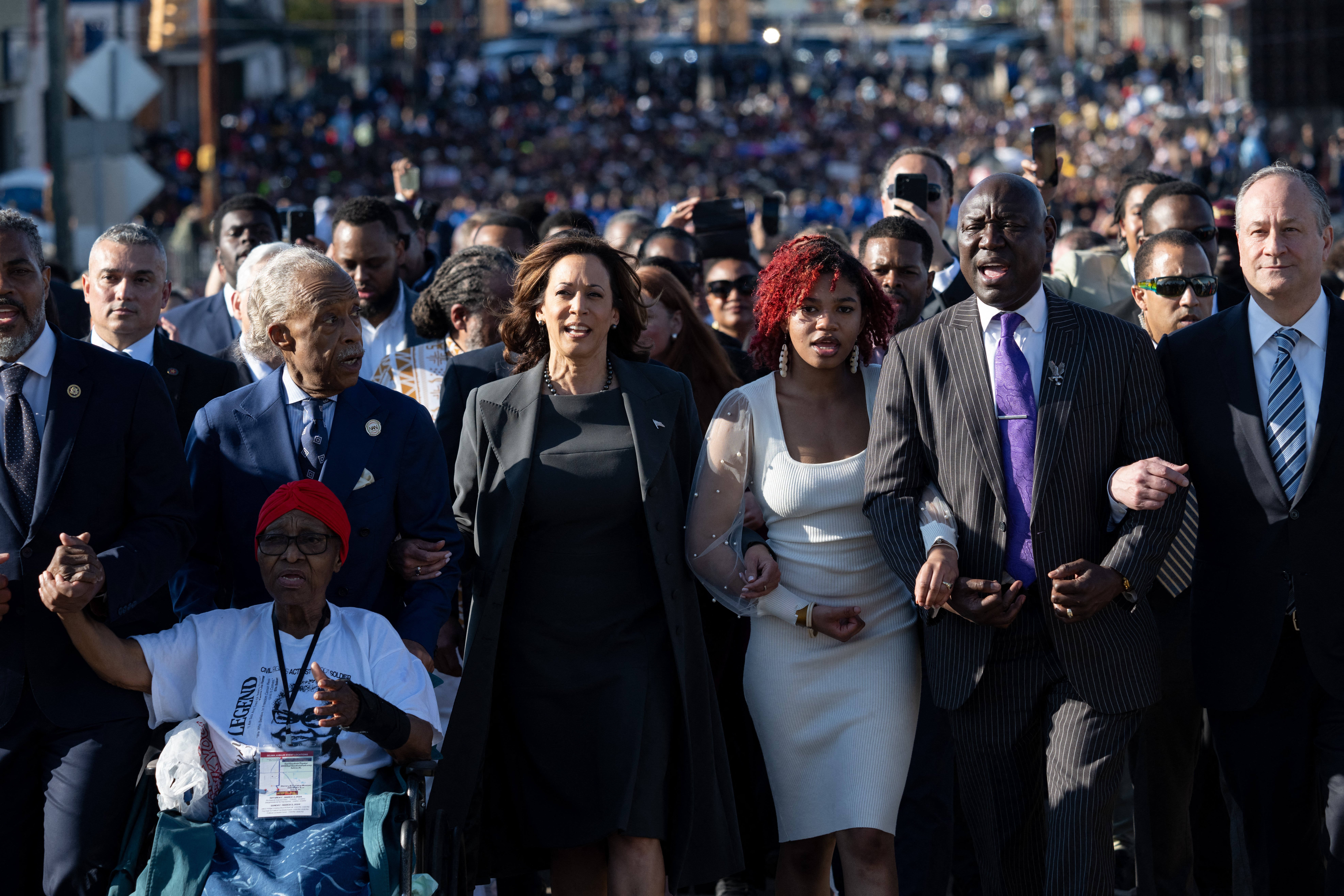
At a Black outreach event packed with Democratic heavyweights in Philadelphia this summer, she proved the unexpected star of the show.
She received some of the biggest reactions during a slick performance where she rattled off a list of the Biden administration’s accomplishments that specifically benefit the Black community — from a $35 cap on the cost of insulin and student debt forgiveness to record investments in historically-Black colleges.
She has been a formidable campaigner on the end of Roe v Wade. In Philadelphia, she underlined how the Supreme Court’s decision to end protections on abortion disproportionately affected Black women, noting that “one in three women and more than half of Black women of reproductive age live in a state with an abortion ban — a Trump abortion ban.”
There are also areas where Harris may perform better than Biden, such as among Arab Americans who are angry at Biden for his support for Israel’s war in Gaza.
“I will say it’s not gone unnoticed that [vice-president] Kamala [Harris] has been more empathetic towards Palestinians than Biden,” Natalia Latif, a spokesperson for the Uncommitted movement, told Mother Jones.
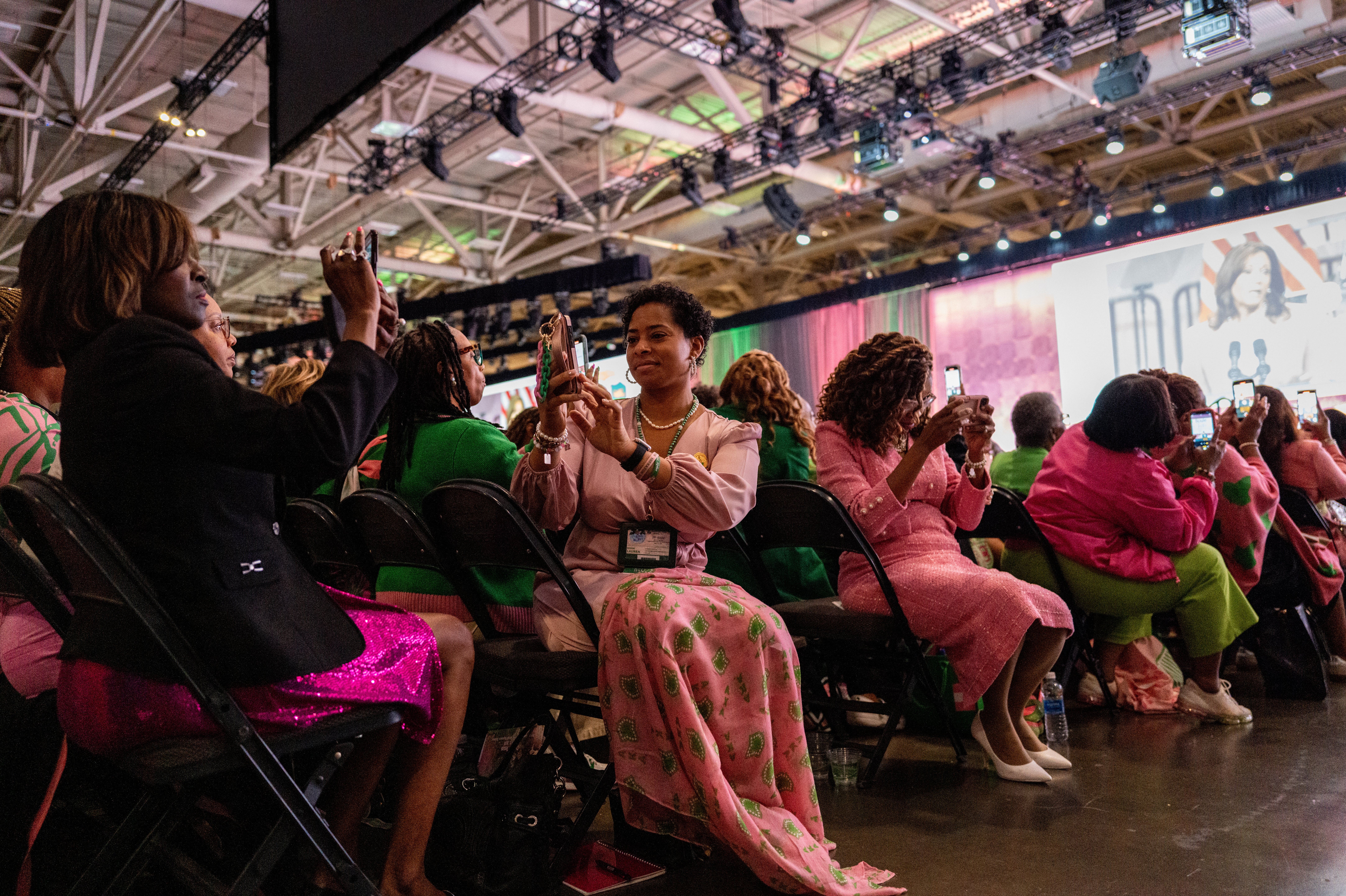
In the weeks since the Trump v Biden debate, there has been a noticeable bump in enthusiasm from Harris’s supporters online, who call themselves the “KHive”.
Memes featuring Harris laughing and delivering her infamous and often-repeated quotes are going viral again — among them a four-minute supercut of her saying her favorite line: “What can be, unburdened by what has been.”
“ironic khive posting is unironically the most energized the twitter Dem electorate has been in about a year and I think there’s probably something optimistic in that,“ Kelly Weill, a journalist and author, wrote on X.
Harris was in a difficult position while Biden was still weighing whether to step down. Now he has stepped aside, her campaign can begin in earnest. She is unburdened.
Join our commenting forum
Join thought-provoking conversations, follow other Independent readers and see their replies
Comments